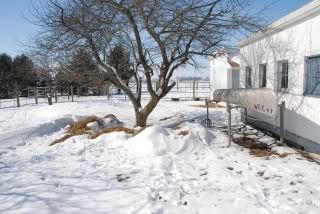Princess Kumatora
Sprout
- Joined
- Aug 10, 2010
- Messages
- 1
- Reaction score
- 0
- Points
- 7
We live in the mountains of New Mexico, and we often grow what Mom calls 'salsa gardens'; tomatoes, herbs, peppers, and some extras, including some cucumbers, lettuce, and squash. However, we've only got 10 max tomatoes from our two tries for growing 5 tomato plants, and the only thing that has actually thrived was our zucchini we grew one year. What exactly are we doing wrong? We're watering them every day, the chickens poop on the soil every winter, they get sunshine, what's up?

 !
!